Allahumma Innaka Afuwwun Tuhibbul Afwa Meaning, Arabic Text And Benefits
Allahumma Innaka Afuwwun Tuhibbul Afwa is one of the best duas that can be recited at Laylat al-Qadr. The dua is that which the Prophet (peace and blessings of Allah be upon him) taught `Aishah (may Allah be pleased with her).
Advertisements
As we approach the holiest nights of the Islamic calendar, the anticipation and excitement are palpable.
In this blog, we will delve into the meaning of this Dua and the significance of Laylatul Qadr.
Allahumma Innaka Afuwwun Meaning in English
The meaning of Allahumma innaka Afuwwun is O Allah, indeed You are Pardoning, You love pardon, so pardon me.
Allahumma Innaka Afuwwun Tuhibbul Afwa Fa’fu Anni in Arabic
Here is how to write Allahumma Innaka Afuwwun in Arabic Text:
Advertisements
اللَّهُمَّ إِنَّكَ عَفُوٌّ تُحِبُّ الْعَفْوَ فَاعْفُ عَنِّي
Transliteration/ Pronounciation
The correct transliteration of this powerful Dua is Allahumma innaka afuwwun tuhibbul afwa fa’fu anni.
Allahumma Innaka Afuwwun Hadith
This hadith was mentioned by many scholars of hadith, and it was included by an-Nasa’i in Al-Sunan Al-Kubra, and Al-Quda’i in Musnad Al-Shihab, and others. The full Hadith is as follows:
It was narrated from ‘Aishah that she said:”O Messenger of Allah, what do you think I should say in my supplication, if I come upon Laylatul-Qadr?” He said: “Say: ‘Allahumma innaka ‘afuwwun tuhibbul-‘afwa, fa’fu ‘anni (O Allah, You are Forgiving and love forgiveness, so forgive me).'”
Source: Sunan Ibnu Majah

Afuwwun Meaning in English
Al-Afuww refers to overlooking the sins of His servant. He, Glory be to Him and Exalted, is Most Forgiving and Powerful.
That is, He forgives and pardons inspite of His power. This is not comparable to children of Adam who would only overlook when they are incapable.
Advertisements
He pardons despite His power and strength. And this is perfect forgiveness. He, the Exalted, loves those who pardon people.
Whoever pardons and rectifies, his reward is with Allah. He, Glory be to Him love those who forgives people. Rather, He has instructed it:
“Show forgiveness, enjoin what is good.”
Surah Al-A’raf: 199
The scholars explained that the meaning of al-Afuww is to accept what is fair from people; that is, what is easy.
Advertisements
Accept it, and do not make it burdensome for them nor tighten the rope. Show forgiveness and overlook others.
This is one of the etiquettes of the Qur’an; one should be kind-hearted to the children of Adam, showing forgiveness.
The point of reference is that the best of supplication to be made on the Night of Decree is: “O Allah, You are Most Forgiving, and You love forgiveness, so forgive me”.
RELATED POSTS:
- Labbaik Allahuma Labbaik in Arabic and Meaning (Talbiyah)
- Allahumma Inni As’aluka Min Fadlik
- Allahumma Arinal Haqqa In Arabic
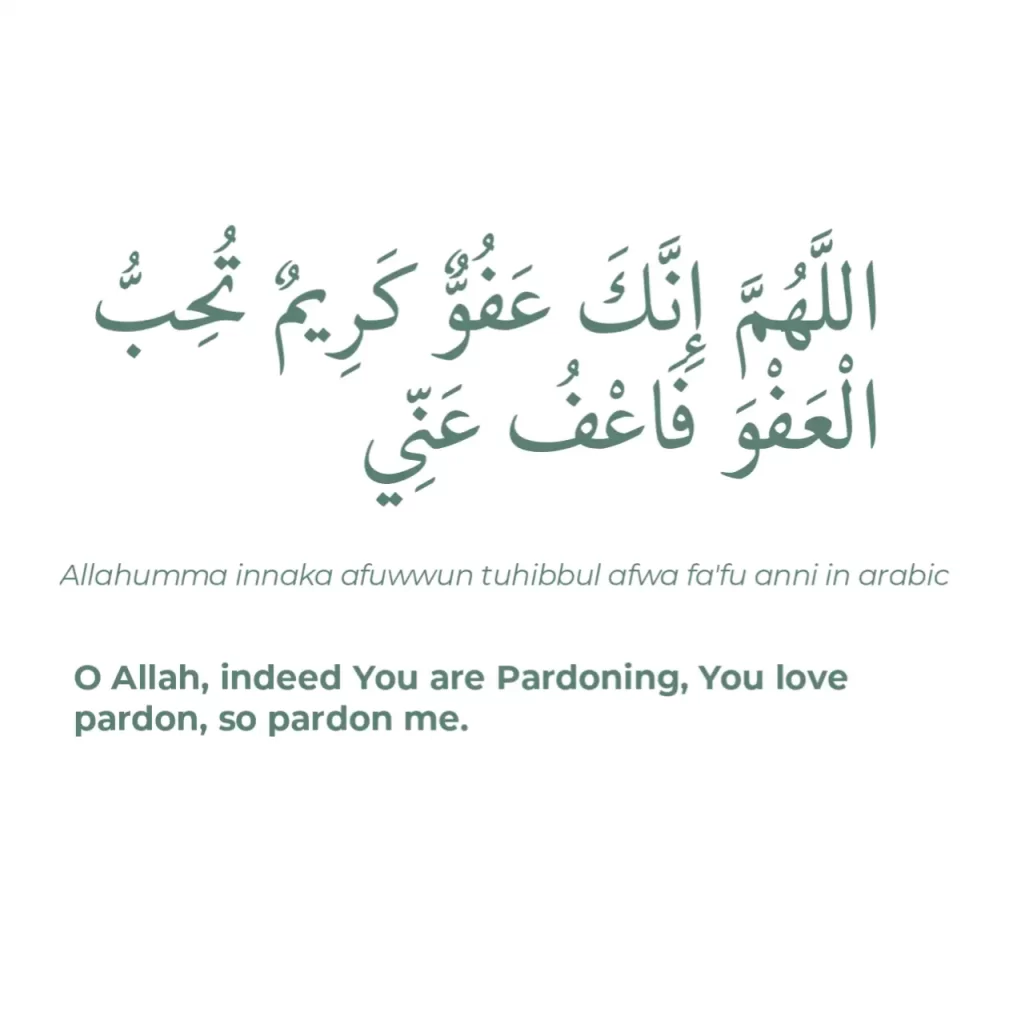
Importance of Laylatul Qadr
Sheikh Uthaimeen said that the excellence of this night is specific to this Ummah.
It is for it. It was stated that the Prophet was shown the ages of his Ummah and it was reduced, so he was given the Night of Decree and this was made better than one thousand months.
So if someone is twenty years old, it becomes twenty thousand good deeds for him on this night.
This is one of the Favours of Allah, the Blessed be He and Exalted, on this Ummah. Allah, the Most High, has distinguished this Ummah and its Prophet SAW with specific characteristics lacking in earlier generations.
All praises belong to Allah, the Lord of all that exists.
It stated that the night of decree is in the month of Ramadan, during the last ten days with particular emphasis on its odd (night) and more emphasis on the twenty seventh night.
However, it shifts within the ten (nights). That is, it could be on the twenty first night this year, the second year twenty third night and the third year twenty fifth night or twenty-seven, or twenty- nine or twenty-four, or twenty-six or twenty-two.
It moves because it is not a specific night. However, it is hoped it would be the twenty seventh night, then the odds (nights) and the hopeful of the last ten nights is seven out of them.
This is because a group among the companions dreamt that the night of decree was among the last seven nights.
So the Prophet SAW said, “I see that your dreams all agree upon the last seven nights. So whoever then seeks the night of Decrees should look for it among the last seven nights.”
This is likely to be every year or that year only. Nevertheless, it is in thelast ten nights of Ramadan. It does not occur in the middle or in the first part; rather in the last ten nights.
Adopted from Explanation of Riyadus Saliheen by Sheikh Uthaimeen.
Forgiveness is defined as the one who forgives the sins of His servants, whether He pardoned them by neglecting duties or because of committing sins.
Sins are divided into two things,
- Either by leaving an obligation or
- By doing a forbidden act.
And the meaning of pardon is that he transcends them in both matters, and the meaning of pardon me, i.e., forgive me for my shortcomings in worship and my committing sins.
For a person to take from people what is easy from them, and to leave behind that of harshness, which is one of the good qualities.
And forgiveness: is to overlook sins, and it was said: It is taken from the wind’s trace; If you remove it, in the sense of one who pardons and forgives, and it is part of benevolence.
That is, He forgives and pardons inspite of His power.This is not comparable to children of Adam who would only overlook when they are incapable. He pardons despite His power and strength.
And this is perfect forgiveness. He, the Exalted, loves those who pardon people. Whoever pardons and rectifies, his reward is with Allah.
He, Glory be to Him love those who forgives people. He has instructed it:
Show forgiveness, enjoin what is good.
(Surah Al A’raf: 199)
Then whoever pardons people, Allah, the Most High, will pardon him. And Allah, the Most High, praises those who pardons in many verses, as His saying:
O you who have believed, indeed, among your spouses and your children are enemies to you, so beware of them. But if you pardon and overlook and forgive, then indeed, Allah is Forgiving and Merciful.
Surah Taghabun, verse 14.
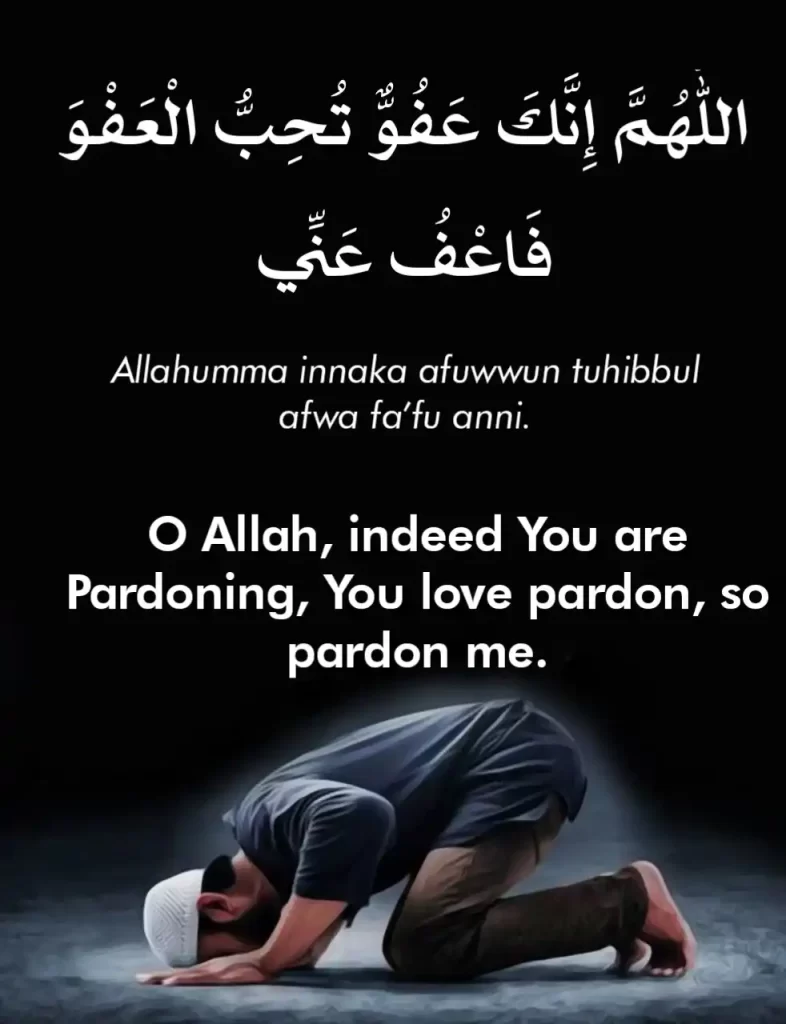
Benefits Of Seeking Forgiveness
It Provides Sustenance
Allah Says:
“And (Noah) said, ‘Ask forgiveness of your Lord. Indeed, He is ever a Perpetual Forgiver.” He will send [rain from] the sky upon you in [continuing] showers And give you increase in wealth and children and provide for you gardens and provide for you rivers.
Quran 71:10-12
It opens the door of mercy
Allah says:
Declare (O Muhammad SAW) unto My slaves, that truly, I am the Oft-Forgiving, the Most-Merciful.
Surah Al-Hijr 15:49
It removes Stress and Anxiety
The Messenger of Allah (ﷺ) said, “If anyone constantly seeks pardon (from Allah), Allah will appoint for him a way out of every distress and a relief from every anxiety, and will provide sustenance for him from where he expects not.” (Abu Dawud)
An Eraser of Sins
“Then, verily! Your Lord for those who do evil (commit sins and are disobedient to Allâh) in ignorance and afterward repent and do righteous deeds, verily, your Lord thereafter, (to such) is Oft-Forgiving, Most Merciful.”
Quran 16:119
And Allah would not punish them while they seek forgiveness [Quran, 8:33]
Your Dua (Supplication) is Accepted
My Lord, forgive me and grant me a kingdom such as will not belong to anyone after me. Indeed, You are the Bestower.
Quran 38:35
This was the dua of Prophet Sulaiman who started his dua by seeking forgiveness from Allah first then asking for his request. That request was granted and will stand until the day of judgement.
Allahumma Innaka Afuwwun Images
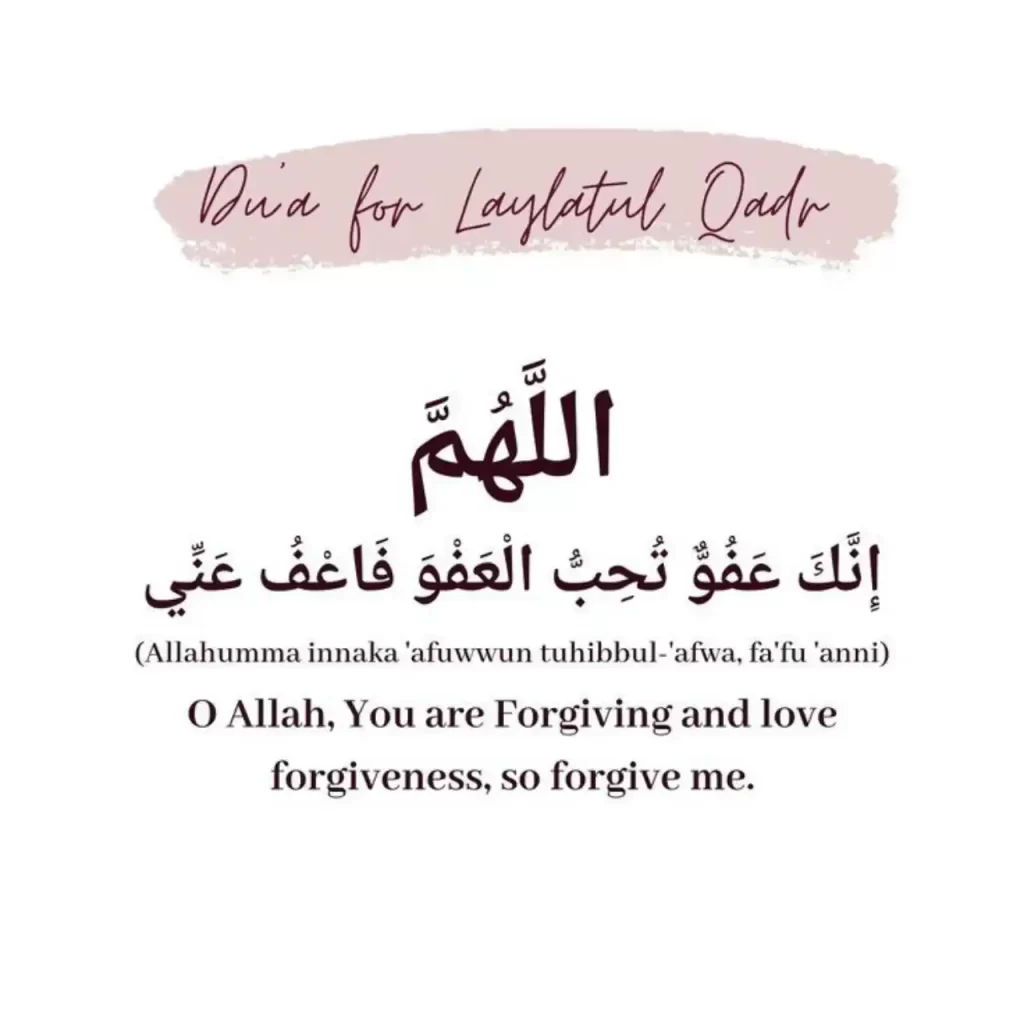


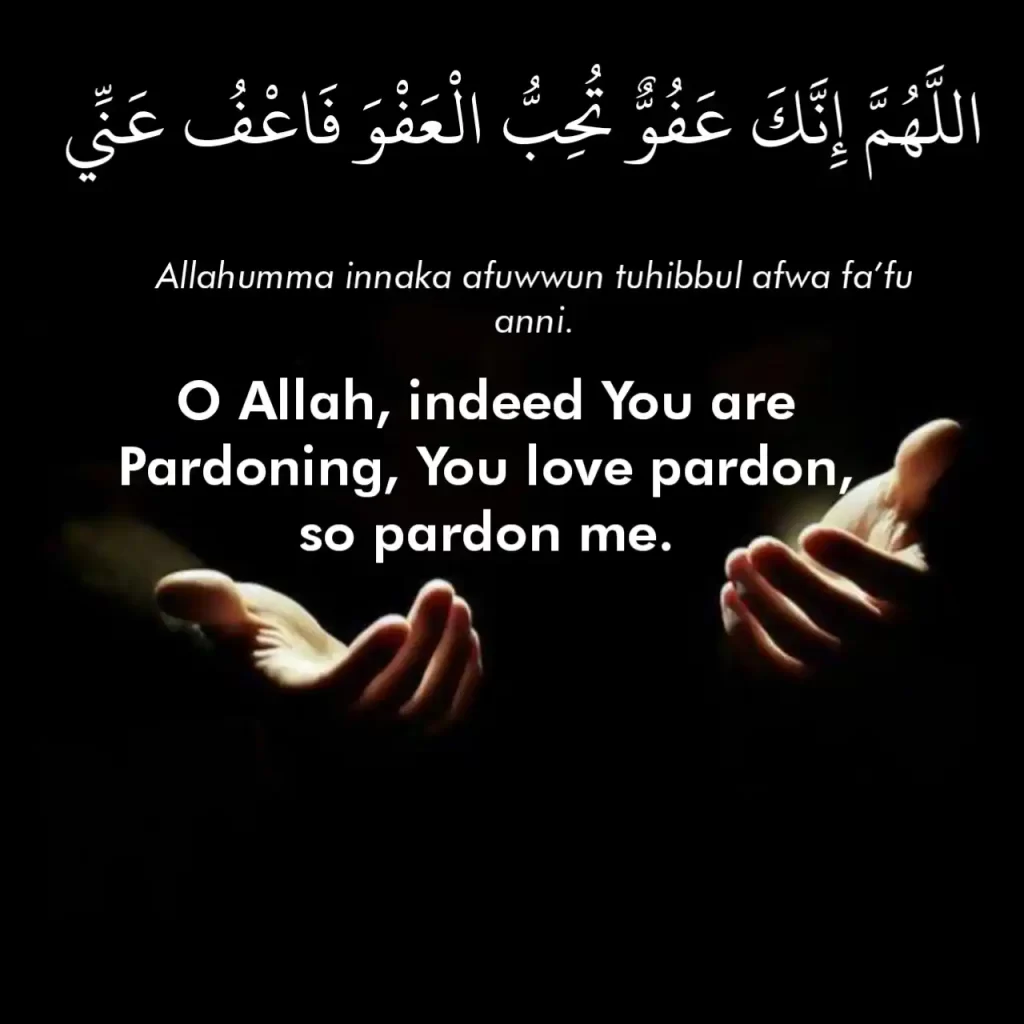
May we always seek Allah’s forgiveness and mercy, and may we be inspired to forgive others with the same grace and compassion. Ameen.
Advertisements

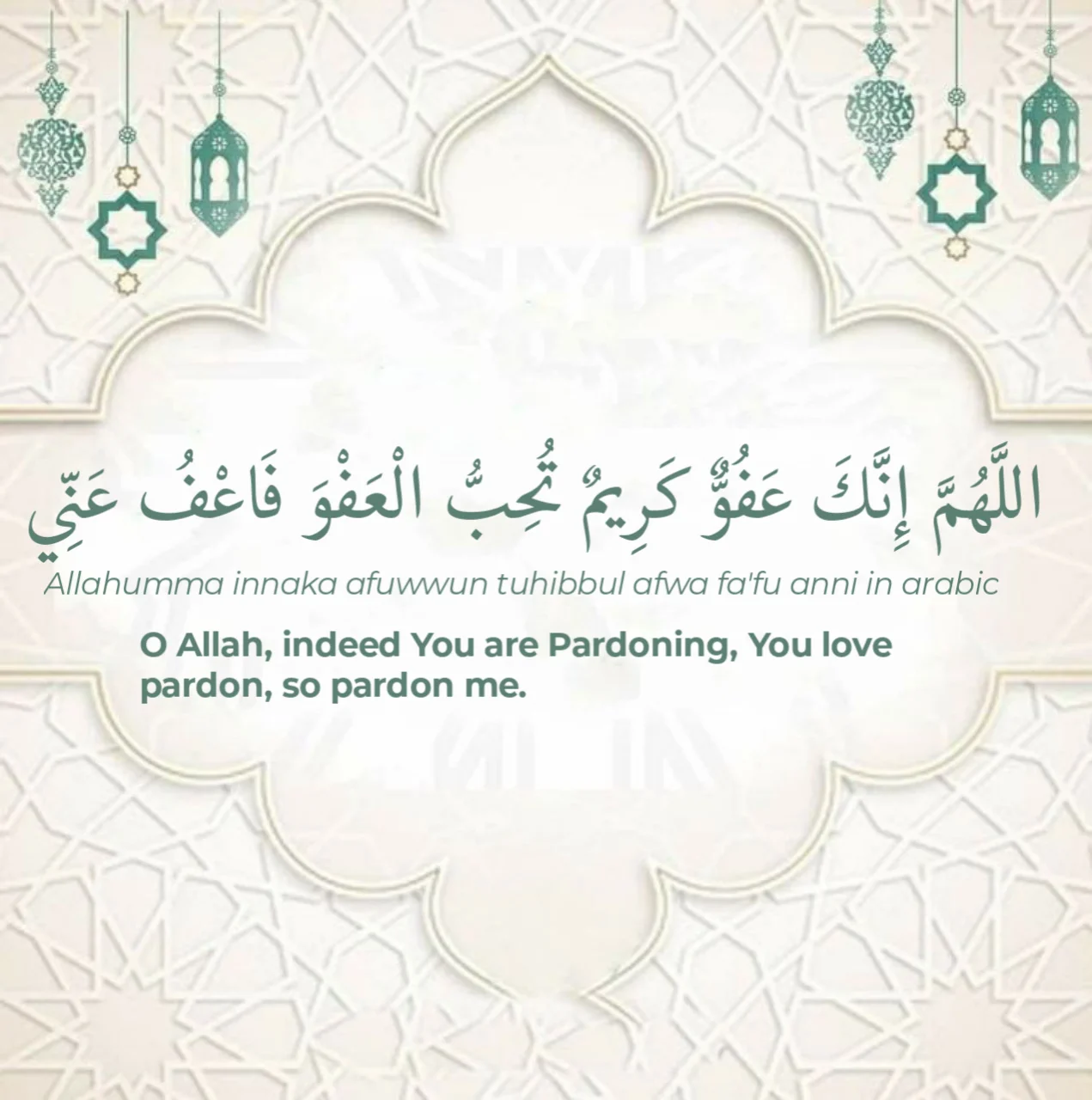
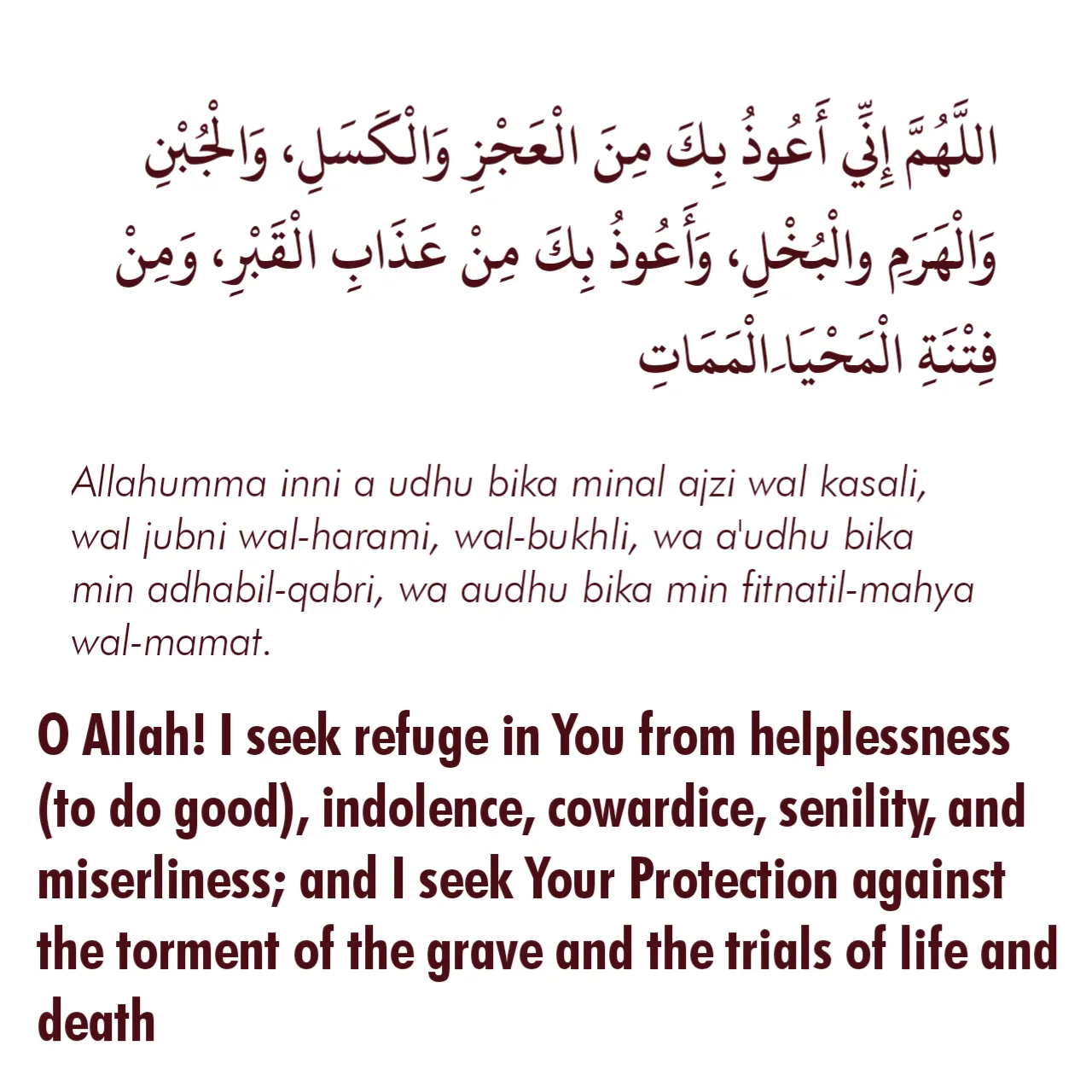
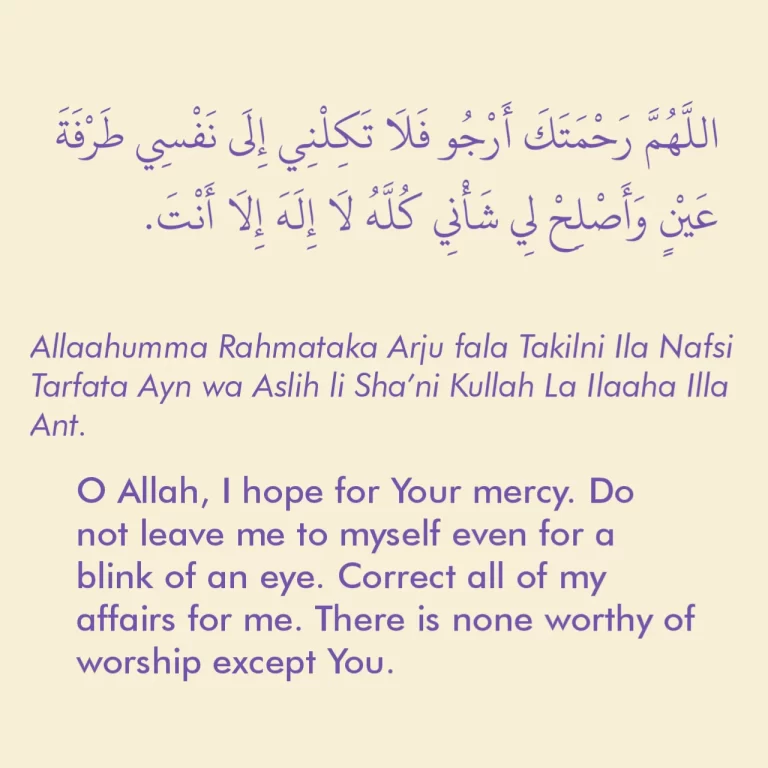

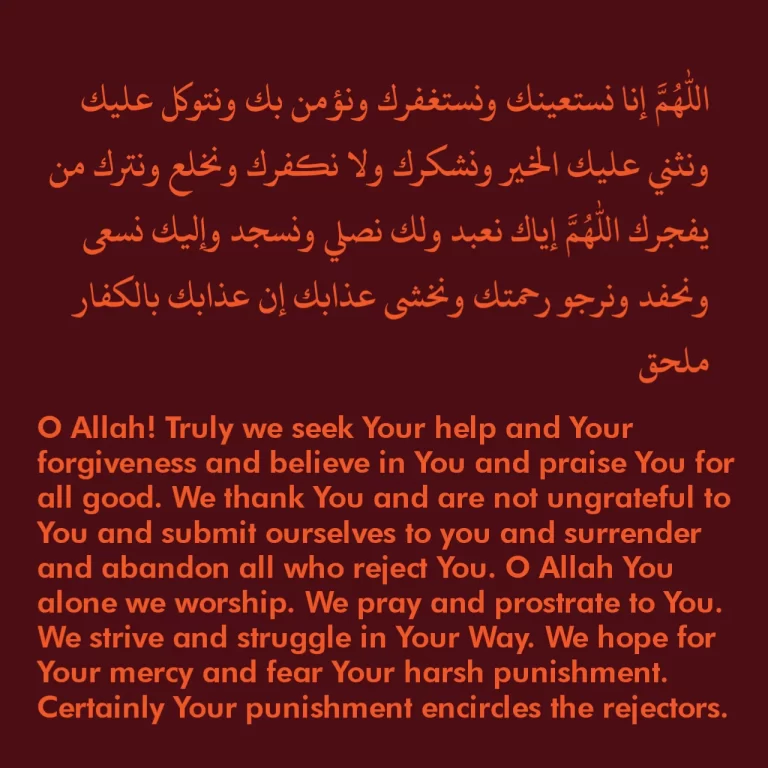


6 Comments